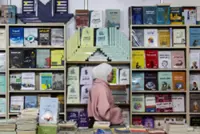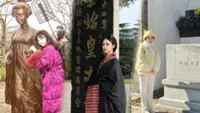Hong Kong is a difficult place to run an independent bookshop.
Rents are high and space is limited, but navigating the law has also become harder in recent years. China imposed a strict national security law on Hong Kong in 2020, and the government has also begun enforcing a dormant, colonial-era sedition law.





